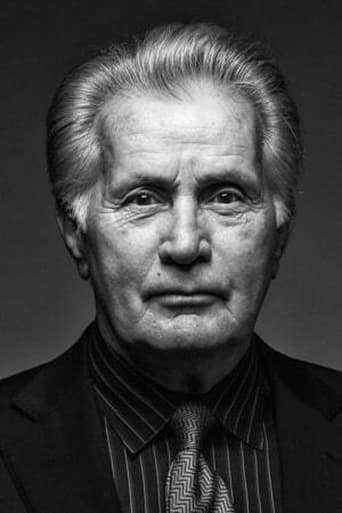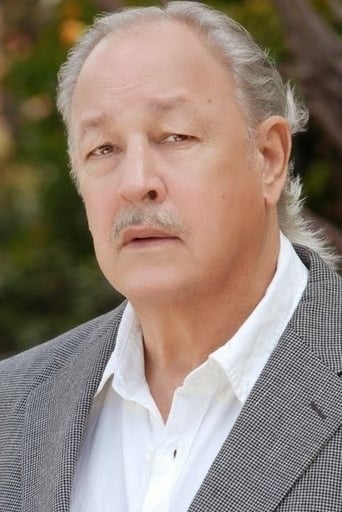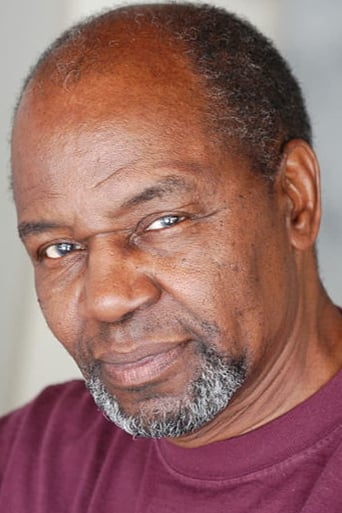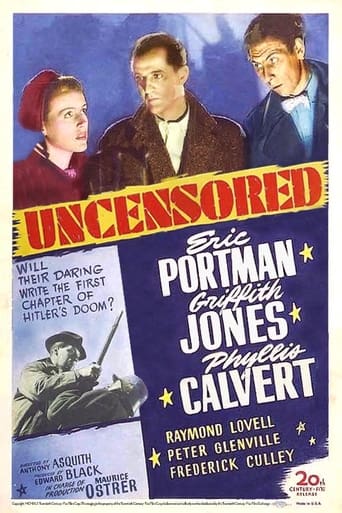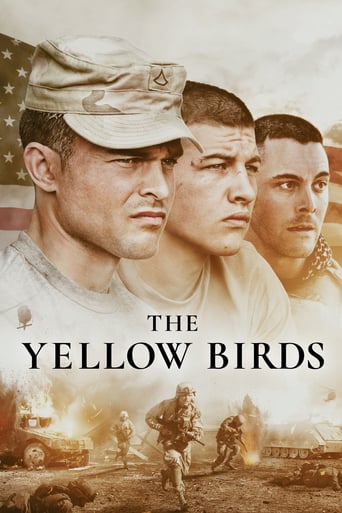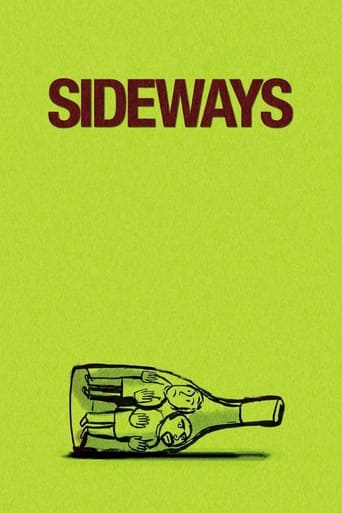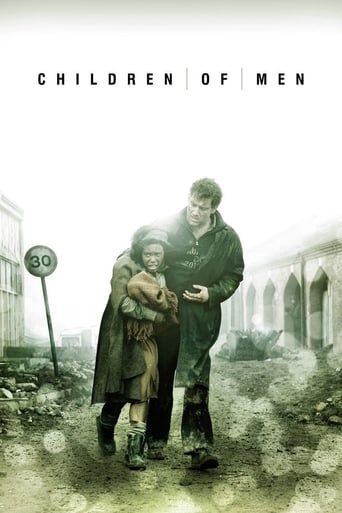Apocalypse Now (1979)
At the height of the Vietnam war, Captain Benjamin Willard is sent on a dangerous mission that, officially, "does not exist, nor will it ever exist." His goal is to locate - and eliminate - a mysterious Green Beret Colonel named Walter Kurtz, who has been leading his personal army on illegal guerrilla missions into enemy territory.
Watch Trailer
Cast


Similar titles
Reviews
Really Surprised!
Fresh and Exciting
The film makes a home in your brain and the only cure is to see it again.
The movie's not perfect, but it sticks the landing of its message. It was engaging - thrilling at times - and I personally thought it was a great time.
Joseph Conrad's 1899 novella Heart of Darkness was about venturing into the moral depths of colonial Africa. Though it wasn't an immediate sensation, it evidently was not ignored by the literary community. The famous line announcing the antagonist's demise, "Mistah Kurtz-he dead," served as an epigraph to T.S. Eliot's poem "The Hollow Men." Eighty years after Conrad's book debuted, the Coppola film Apocalypse Now hit the big screen. Though lightly influenced by Heart of Darkness, the movie's setting was not the Belgian Congo, but the Vietnam War. And though the antagonist (played by Marlon Brando) was named Kurtz, that particular Kurtz was no ivory trader, but a U.S. military officer who had become mentally unhinged. The book began and ended in the United Kingdom. Though it recounted Marlow's voyage through Belgian Congo in search of Kurtz and is forever linked to the African continent, Conrad's novella began and ended in England. At the story's conclusion, the "tranquil waterway" that "seemed to lead into the heart of an immense darkness" was none other than the River Thames. The well-traveled protagonist, Marlow-who appears in other Conrad works, such as Lord Jim-was based on his equally well-traveled creator. In 1890, 32-year-old Conrad sailed the Congo River while serving as second-in-command on a Belgian trading company steamboat. As a career seaman, Conrad explored not only the African continent but also ventured to places ranging from Australia to India to South America. Colonizing was then, when the book appeared,all the rage . Imperialism-now viewed as misguided, oppressive, and ruthless-was much in vogue when Conrad hit shelves. The "Scramble for Africa" had seen European powers stake their claims on the majority of the continent. Britain's Queen Victoria was portrayed as the colonies' "great white mother." Since the wise magi saw the star in the East, Christianity had found no nobler expression. Conrad, however, did not echo the imperialistic exuberance. He no champion of colonialism, Chinua Achebe-the Nigerian author -delivered a 1975 lecture called "An Image of Africa: Racism in Conrad's Heart of Darkness" that described Conrad as a "thoroughgoing racist" and his ubiquitous classic novella as "an offensive and deplorable book." However, even Achebe credited Conrad for having "condemned the evil of imperial exploitation." And others have recognized Heart of Darkness as an indictment of the unfairness and barbarity of the colonial system. Heart of Darkness managed to ascend to immense prominence in the 1950s, after the planet had witnessed "the horror"-Kurtz's last words in the book-of WWII and the ramifications of influential men who so thoroughly indulged their basest instincts. Coppola's film was based on a terrible misreading of Conrad. Coppola turned a brilliant piece of fiction into a visual disaster. The complex narrative was transformed in ordinary Kitsch. The final scenes, involving Dennis Hopper and Marlon Brando , are lame. What, then, can one see in "Apocalypse Now"? Little more than all the one-sided anti-American, anti-Vietnam-war stereotypes of those times: Wagner's Ride of the Valkyries subtly suggesting that America might be a counterpart to National Socialism); the denunciation of the "Ugly American" alienation; the irony & smartness of metaphors like juxtaposing warfare and surfer-safaris ; and so on. Hardly "the most honest account of the futility of war." A better description is "a schizophrenic approach to the randomness of guerrilla warfare." An ambiguous fantasy. But people are welcome to read into it any way they want.
During the Vietnam War, Captain Willard is sent on a dangerous mission into Cambodia to assassinate a renegade Colonel who has set himself up as a god among a local tribe. Apocalypse Now is for sure a really beautiful film and very well made in general plus Robert Duvall gives one of his best perfomances and the entire cast is pretty good in general but where the film kinda disappointed me at least the Redux version did was with the story that was kinda slow and at times even hard to follow, some of the character's motivations were also a bit muddled like Brandon's for instance plus the scenes with the 2 women and the french weren't even needed. Overall an overrated and decent drama. (7/10)
This film was incredibly well done, and the similarities to Conrad's Heart of Darkness were amazing, creating a similar message in the end. The first scene is everything: the cinematography was perfect, and The End by the Doors as the soundtrack worked eerily well. Lighting throughout the movie, especially surrounding the mysterious Kurtz (although it was needed) also worked well to establish the mood. Throughout the movie, we are encouraged to see that Kurtz' inhumanity likely stems from being put in a situation where he answers to (essentially) no one, where there are no rules, and where morals he thought he once had fell apart. Maybe, it is more the absence of "civilization" that leads to the "civilization" that encourages inhumane treatment. It is human nature that is at fault, not any individual or group. The encouragement of American society for Kurtz to act in this way also definitely had an effect on him, but this is also human nature in a way. Human nature includes the elite's love for power and their ability to send others off to do the dirty work as well as the quality of obedience in those "others". All of these are human biases, and it seems like only the people who have a great deal of self-awareness/control would be able to overcome them. Coppola's genius in Apocalypse Now encourages us to recognize that we all have darkness inside of us, but it is our ability to overcome this madness, even in the face of no authority or laws OR in the face of authority that is evidently incorrect, that is what matters. This movie, like Conrad's masterpiece, also raises the following questions: When to "shield" the truth? Who should do so? Does anyone have the right to do so? Should the public have full access to all knowledge? It makes sense to think that the general public is sometimes not in the position to make a good judgement call and that emotions would cloud our judgement. But this mindset is also dangerous for the people who ultimately make the call, as it places them on a pedestal that could then cloud their judgement. Hard question that we need to ask ourselves...There are also apparent differences between Apocalypse Now and Heart of Darkness. For example, in Heart of Darkness, the British Empire stands firm, with Conrad seeming to respect the British Empire endlessly. With such a positive view of the motherland, the implications in Heart of Darkness in terms of England seem to be that all is not yet lost and there is some hope for mankind after all. The film is entirely different; after watching it and learning of the Vietnam war, few people would dare to advocate for the US as a solution to any problem today. This then leads us to the opposite conclusion: that America has absolutely no right to put itself on a pedestal that creates 'good' in the world. And of course, in today's view, this idea is much more realistic and applicable. I appreciate that Coppola urges his audience to recognize that America is not some heaven and also to look back on history and our mistakes. This movie was very well done, with aspects like sound and editing coming together to create a masterpiece, and raises difficult questions that we must ask ourselves.
Coppolla's flawed but masterfully done movie earns it's ranking on almost every top film list that matters. 3 years in the making, the finished cut (the 1979 version not the "Redux") doesn't reflect Coppolla's personal agony in creating this (that story is told in the documentary "Hearts of Darkness" by Coppolla's wife Eleanor). Like every war movie, there are the inevitable criticisms of lack of realism in the events portrayed, to the tune of "Yeah we really did a lot of surfing during fire fights, didn't we?" But that viewpoint is perhaps improper when looking at a truly unconventional movie of this type. "Apocalypse" is no documentary but a metaphor for the Vietnam war itself, and comparing it to other more realistic movies such as "Platoon" is unfair. Coppolla clearly is going for effect here, and the extreme absurdity of the events shown are intentional and meant to elicit an emotional reaction from the viewer (and anyone who saw this film in a packed theater in 1979 will tell you, Coppolla succeeded admirably at this). This is one of the few movies that deserve (and almost require) multiple viewings, since it would be very difficult to get the full effect of the powerful story-telling going on here, and to grasp the message (the madness that was Vietnam.). It's safe to say if this is your first viewing of "apocalypse", it'll be like no other movie ever made, before or since.In my opinion the best cut of the film to watch is the 1979 original and NOT the "Redux", at least for the first viewing. The Redux was released in 2001 and includes about an additional hour of footage - but most of the new footage seems pointless, is fairly ponderous, slows down the story immensely and not one bit of it adds to the plot (and in fact dilutes the story in a big way.)








